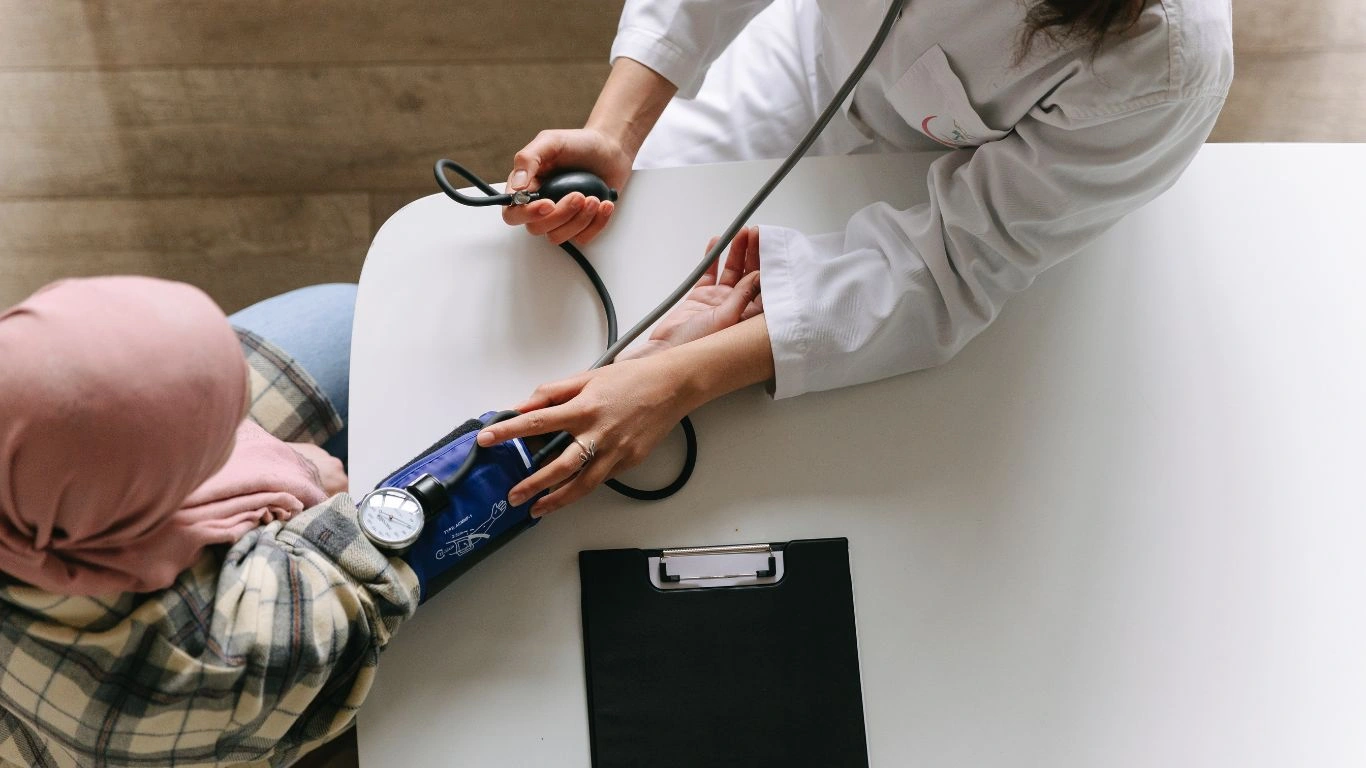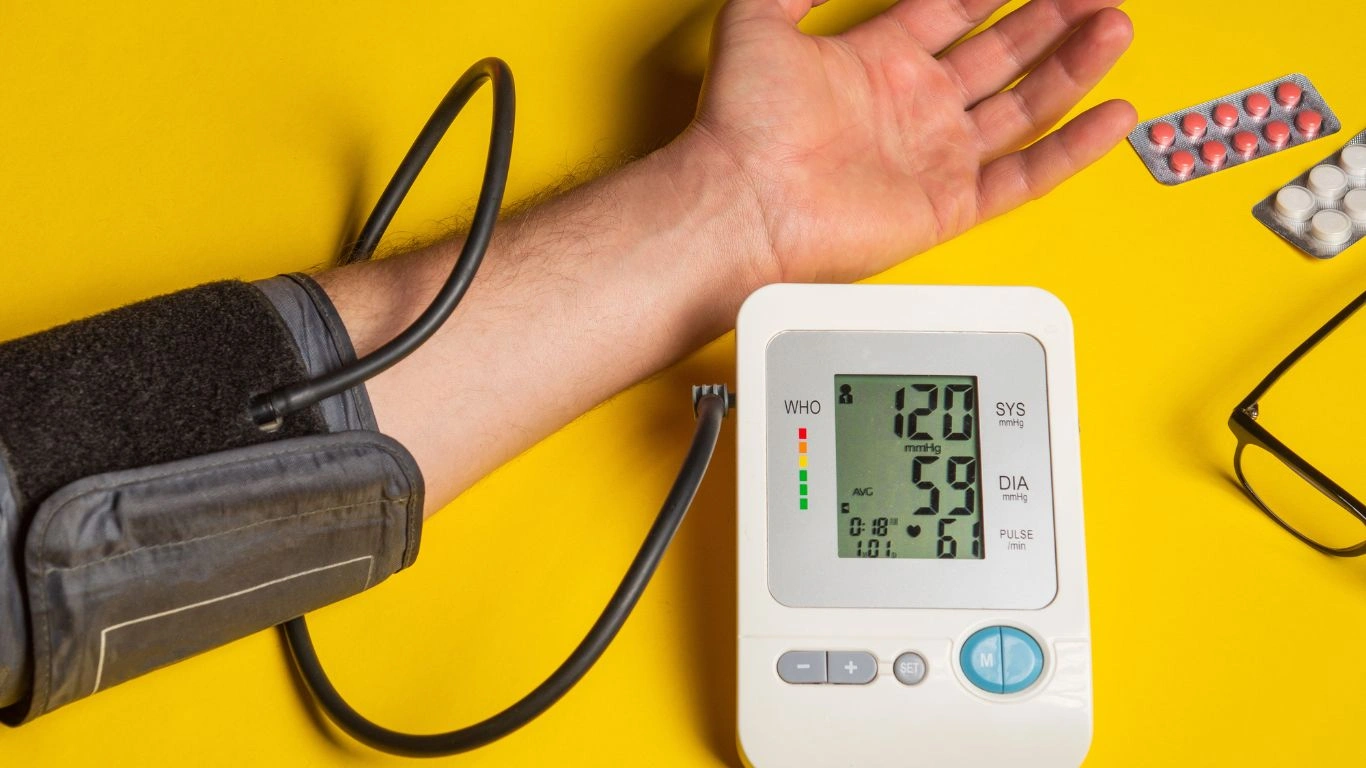5 Powerful Tips to Prevent Hypertension During Pregnancy
Hypertension during pregnancy is a condition that requires close attention, not only for the mother but also for the baby’s well-being. As a hypertension expert, I’ve seen firsthand how the symptoms can often go unnoticed, or worse, be mismanaged. High blood pressure during pregnancy, also known as gestational hypertension, can develop at any point after the 20th week of pregnancy. While it may resolve after delivery, it can still pose risks, such as preterm birth or complications in labor.
The good news is that with proper prevention strategies and management, the risks can be significantly minimized. In this article, I’ll walk you through some essential prevention tips for hypertension during pregnancy, drawing on my years of experience in the field to help ensure you have the best care possible.
What is Hypertension During Pregnancy?
Hypertension during pregnancy is a general term used for high blood pressure that occurs during pregnancy. There are two main types to be aware of: gestational hypertension and pre-existing hypertension. It’s important to differentiate between these two because their management might differ.
Gestational Hypertension typically develops after the 20th week of pregnancy. The blood pressure rises without the presence of protein in the urine, which can develop into a more severe condition called preeclampsia.
Pre-existing Hypertension refers to high blood pressure that was present before pregnancy or diagnosed before the 20th week. This can also be dangerous, as it increases the likelihood of complications for both the mother and baby, such as placental problems or poor fetal growth.
How Does Hypertension Affect Pregnancy?
If you’re experiencing hypertension during pregnancy, you may wonder what effect this condition has on both you and your baby. It’s understandable to feel concerned, but with the right care, most women with hypertension can still deliver healthy babies. However, high blood pressure can increase the risk of complications such as:
- Preeclampsia: A serious condition that can lead to organ damage if untreated, affecting the kidneys and liver.
- Placental Problems: Reduced blood flow to the placenta can result in poor fetal growth or preterm birth.
- Preterm Birth: High blood pressure can increase the risk of early delivery to protect the health of both mother and baby.
It’s important to monitor blood pressure levels regularly and follow healthcare provider recommendations. I’ve seen how effective this can be in managing hypertension during pregnancy. With proper medical guidance and a few lifestyle adjustments, you can significantly reduce your risks.
Prevention Tips for Hypertension During Pregnancy

Now, let’s dive into some practical tips that can help you prevent hypertension during pregnancy. Prevention is always better than treatment, and with the right steps, you can keep your blood pressure in check.
1. Regular Prenatal Checkups
One of the most crucial steps to prevent hypertension during pregnancy is keeping up with your regular prenatal checkups. These visits allow your healthcare provider to monitor your blood pressure, check for signs of protein in the urine, and detect any early symptoms of hypertension. Early detection is key!
Having regular checkups also gives you a chance to ask questions and voice any concerns. I always recommend my patients be proactive about their visits—don’t wait until something feels “off.” The more informed and prepared you are, the better you’ll be able to handle any potential complications.
2. Stay Active, But Safely
Maintaining a healthy level of physical activity is another effective way to prevent high blood pressure. Exercise helps keep your heart healthy, improves circulation, and promotes healthy weight gain during pregnancy. However, it’s essential to consult with your doctor before starting or modifying any exercise routine.
Walking and swimming are often recommended, as they are low-impact activities that help reduce stress and keep blood circulation strong. I’ve seen many expectant mothers benefit from just 30 minutes of light exercise several days a week. It doesn’t have to be intense; consistency is the key!
3. Eat a Balanced, Nutrient-Dense Diet
Your diet plays a significant role in preventing hypertension. Eating a diet rich in fruits, vegetables, whole grains, lean proteins, and healthy fats can help maintain optimal blood pressure levels. Some foods, such as those rich in potassium and magnesium, are particularly beneficial in managing blood pressure. These include:
- Bananas: High in potassium, which helps balance sodium levels and reduces blood pressure.
- Leafy Greens: Rich in magnesium, helping to relax blood vessels and reduce strain on the heart.
- Avocados: Packed with healthy fats and potassium to regulate blood pressure.
Avoid excessive sodium and processed foods, which can contribute to high blood pressure. I often remind my patients that what you put on your plate directly impacts your health—and that’s especially true during pregnancy.
4. Monitor Your Weight Gain
Gaining weight is normal during pregnancy, but it’s essential to do so in a healthy and controlled manner. Excessive weight gain can increase the risk of hypertension, gestational diabetes, and other complications.
Talk to your healthcare provider about a healthy weight gain goal based on your starting weight and any other individual health factors. By sticking to a balanced diet and staying active, you can manage your weight gain without overdoing it.
5. Manage Stress Effectively
High stress levels can contribute to elevated blood pressure, so finding ways to relax and unwind is essential for both your well-being and the health of your baby. Stress can be hard to avoid, but relaxation techniques like deep breathing, meditation, or even prenatal yoga can be beneficial.
From my experience, finding a healthy balance of work, rest, and play is crucial. Remember, you’re growing a tiny human inside of you—it’s okay to slow down and take time for self-care!
Hypertension during pregnancy doesn’t have to be a major source of worry. By taking the right precautions, such as monitoring your health with regular checkups, staying active, eating well, managing your weight, and reducing stress, you can help prevent complications and enjoy a healthier pregnancy. It’s all about finding a balance that works for you, and remember—you’re not alone on this journey. Consult with your healthcare provider to develop a personalized plan that will support both your health and your baby’s.

Managing Hypertension During Pregnancy: Medical Interventions
While lifestyle modifications play a crucial role in preventing and managing hypertension during pregnancy, there are also medical interventions that may be necessary to ensure the health of both mother and baby. It’s essential to recognize when lifestyle changes aren’t enough and when it’s time to rely on healthcare professionals for more specialized care. In my years of practice, I’ve found that most women with gestational hypertension or pre-existing hypertension can manage their condition effectively with the right treatment plan.
If your blood pressure readings continue to rise despite lifestyle changes, your doctor may recommend certain medications to help control it. However, the key is to find treatments that are safe during pregnancy. Common medications for hypertension during pregnancy include:
- Beta-blockers: These can help lower blood pressure by reducing the heart’s workload.
- Calcium channel blockers: These relax blood vessels, allowing blood to flow more easily.
- Diuretics (with caution): Sometimes used to help the body eliminate excess fluid, but these need to be monitored carefully during pregnancy.
It’s important to note that some medications that are commonly used for hypertension in non-pregnant individuals are not safe during pregnancy. For example, ACE inhibitors and ARBs are avoided during pregnancy due to their potential harm to the baby. This is where your doctor’s guidance becomes invaluable—they will help find the safest and most effective treatment for your specific needs.
Monitoring Blood Pressure at Home
Alongside regular checkups at your healthcare provider’s office, I always encourage my patients to monitor their blood pressure at home, especially if they are at a higher risk for hypertension. Having a reliable home blood pressure monitor can give you peace of mind and keep you proactive about your health.
For accurate readings, make sure to follow these guidelines:
- Use a validated blood pressure monitor: Choose a cuff that fits your arm properly, and make sure it’s validated for accuracy.
- Measure at the same time each day: Consistency is key. The best time is usually in the morning, before eating or drinking.
- Take two or three readings: Blood pressure can vary, so taking multiple readings and averaging them can give a clearer picture.
By keeping track of your blood pressure at home, you’ll be able to quickly spot any concerning trends. I’ve had patients tell me how empowering it feels to take charge of their health in this way. Plus, you’ll have more data to discuss with your healthcare provider during appointments.
When to Seek Immediate Medical Attention

In some cases, despite your best efforts at prevention and treatment, hypertension during pregnancy can still escalate. Knowing when to seek medical attention is critical in preventing more severe complications. Here are some signs to watch out for:
- Severe headache: A constant or sudden, severe headache can be a sign of preeclampsia, especially when combined with high blood pressure.
- Vision changes: Blurred or double vision or seeing spots can be warning signs of an issue with your blood pressure or preeclampsia.
- Severe swelling: While mild swelling is normal during pregnancy, sudden or severe swelling, especially in the hands, face, or legs, can be a red flag.
- Abdominal pain: Pain in the upper right side of your abdomen may indicate problems with your liver, which is associated with preeclampsia.
- Shortness of breath: Difficulty breathing or feeling out of breath for no apparent reason should be evaluated immediately.
If you experience any of these symptoms, it’s important to contact your healthcare provider right away. I’ve always stressed to my patients that it’s better to err on the side of caution. Early intervention can make a significant difference in preventing serious complications for both mother and baby.
The Role of Support in Managing Hypertension During Pregnancy
As with any health condition, having a strong support system can make a world of difference when managing hypertension during pregnancy. Whether it’s your partner, friends, family, or healthcare team, being surrounded by people who care can help reduce stress and improve overall well-being.
In my experience, many of my patients feel more confident and at ease when they have a trusted support network. It’s not just about the physical care; emotional support is equally important. Here are a few ways to ensure you have the support you need:
- Talk openly with your healthcare provider: Be honest about how you’re feeling, both physically and emotionally. Your doctor should be a source of support and guidance, and they’ll tailor your treatment plan to your unique needs.
- Communicate with your loved ones: Let them know what you need—whether it’s help with household chores, emotional support, or simply someone to talk to.
- Join a support group: Sometimes, talking to others going through similar experiences can provide comfort. Online or in-person support groups for pregnant women with hypertension can be a great resource.
Having that emotional support is just as essential as medical care. Knowing you’re not alone in your journey can make all the difference in managing hypertension during pregnancy. I’ve seen firsthand how a positive mindset, coupled with proper treatment, can lead to better outcomes for both mother and child.
Conclusion: Empowering Yourself to Prevent Hypertension During Pregnancy

Preventing hypertension during pregnancy is possible with the right combination of lifestyle modifications, regular checkups, and medical support. By staying informed, monitoring your health, and following your healthcare provider’s advice, you can ensure a healthier pregnancy for both you and your baby. Remember, the goal is to manage your blood pressure effectively and reduce any risks. It’s not about perfection—it’s about doing your best and seeking help when needed.
Having hypertension during pregnancy can feel overwhelming at times, but with the right strategies in place, it is entirely manageable. Take a deep breath, take care of yourself, and know that you’re doing everything you can for your health and your baby’s health. You’ve got this!
Case Studies & Real-Life Examples of Managing Hypertension During Pregnancy
Understanding the theory behind hypertension during pregnancy is essential, but sometimes the best way to learn is through real-life experiences. Over the years, I’ve worked with numerous women who have faced this challenge, and I wanted to share some of their stories to highlight how prevention and treatment can truly make a difference.
Case Study 1: Sarah’s Journey with Gestational Hypertension
Sarah came to me during her second trimester, already dealing with elevated blood pressure. She was worried, as it was her first pregnancy, and she had heard about the potential complications that can arise from hypertension. After discussing her lifestyle, we found that her stress levels were high due to work and personal pressures. She wasn’t getting enough sleep, and her diet needed some adjustments.
We worked together to create a personalized plan that included:
- Stress management techniques: Meditation and gentle yoga were incorporated to help her unwind.
- Dietary changes: We introduced more potassium-rich foods and reduced sodium intake.
- Regular exercise: Walking became her go-to activity, as it was low-impact but highly effective.
With consistent efforts, Sarah’s blood pressure stabilized, and she successfully carried her baby to term. What I love about Sarah’s story is how she became empowered by her own actions, and she took full ownership of her health. It’s such a reminder that even when the situation feels challenging, you have the power to make significant changes with the right guidance and support.
Case Study 2: Maria’s Pre-existing Hypertension Management
Maria came to me with a history of hypertension, long before her pregnancy. She had been managing her condition with medication but was understandably nervous about how it would affect her pregnancy. We worked closely with her obstetrician to ensure that the medications she was taking were safe during pregnancy.
Maria’s plan included regular blood pressure monitoring at home, making slight dietary adjustments, and ensuring she didn’t overdo it with any physical activity. She also stayed in close contact with her healthcare team to monitor any changes in her health. Throughout her pregnancy, she remained calm, and with the right treatment, her blood pressure was well-managed, and her baby was born healthy and happy.
Maria’s experience is a great example of how pre-existing conditions can be managed with a team approach. Working with specialists, like obstetricians, cardiologists, and dietitians, ensures that the treatment plan is comprehensive and effective for both the mother and the baby.
Key Takeaways: What You Need to Remember
As we wrap up this article, here are the key takeaways to keep in mind when it comes to managing hypertension during pregnancy:
- Prevention is key: Lifestyle modifications, such as stress management, a balanced diet, and regular exercise, can significantly lower the risk of hypertension during pregnancy.
- Medical support is crucial: For those with pre-existing hypertension or gestational hypertension, working closely with healthcare providers is essential to ensure safe and effective treatment.
- Home monitoring is empowering: Keeping track of your blood pressure at home allows you to stay proactive and catch any issues early, providing valuable information for your healthcare team.
- Don’t ignore warning signs: If you experience severe symptoms like headache, vision changes, or swelling, don’t hesitate to seek medical attention immediately.
- Emotional support matters: Having a strong support system during pregnancy can help reduce stress and improve your overall well-being. Don’t be afraid to reach out to loved ones or support groups.
Managing hypertension during pregnancy may feel overwhelming, but remember that you don’t have to navigate it alone. With the right strategies in place, you can keep your blood pressure under control and enjoy a healthy pregnancy.
5 FAQs About Hypertension During Pregnancy
1. What are the main causes of hypertension during pregnancy?
Hypertension during pregnancy can occur due to several factors, including genetics, pre-existing health conditions like chronic hypertension, age, and lifestyle factors such as diet and stress. Sometimes, it can happen without an identifiable cause, which is why it’s important to monitor your health regularly.
2. Can hypertension during pregnancy affect the baby?
Yes, uncontrolled hypertension can lead to serious complications for both the mother and the baby, such as preeclampsia, premature birth, and low birth weight. However, with proper management, the risks can be minimized.
3. How can I prevent hypertension during pregnancy?
Preventing hypertension during pregnancy involves maintaining a healthy lifestyle. This includes managing stress, eating a balanced diet with plenty of fruits and vegetables, exercising regularly (with your doctor’s approval), and getting enough rest.
4. Is it safe to take medication for hypertension during pregnancy?
Some medications are safe for managing hypertension during pregnancy, but others are not. Always consult with your healthcare provider to ensure that any prescribed medication is safe for both you and your baby.
5. How often should I check my blood pressure during pregnancy?
If you’re at risk for hypertension, it’s a good idea to check your blood pressure regularly at home. Your healthcare provider will guide you on how often you should monitor it based on your specific situation.
Bonus: Additional Resources or DIY Tips
Aside from the advice in this article, here are a few more resources and DIY tips that could help you manage hypertension during pregnancy:
- Mindful Breathing Exercises: Taking 5-10 minutes each day to practice deep breathing can significantly reduce stress and help manage blood pressure. Apps like Headspace and Calm offer guided sessions for beginners.
- Pregnancy-Safe Yoga: Gentle, pregnancy-safe yoga poses can help improve circulation and reduce stress. There are many online classes and YouTube channels that specialize in prenatal yoga.
- Healthy Recipes: Cooking meals at home allows you to control your sodium intake and incorporate heart-healthy ingredients like leafy greens, salmon, and whole grains. Check out websites like [American Heart Association](https://www.heart.org) for hypertension-friendly recipes.
Appendix: References, Disclaimer, and Call to Action
As always, make sure to consult with your healthcare provider before making any changes to your diet or lifestyle. This article is meant to provide general information about managing hypertension during pregnancy, but it is not a substitute for medical advice.
For more information and resources on managing hypertension and other health-related topics, check out the following trusted sources:
- American Heart Association
- Centers for Disease Control and Prevention (CDC) – Pregnancy
- March of Dimes
If you or someone you know is dealing with hypertension during pregnancy, I encourage you to take action today. Reach out to your healthcare provider, monitor your blood pressure, and make the necessary changes to ensure a healthy pregnancy.
Remember, managing hypertension during pregnancy isn’t just about preventing risks—it’s about giving yourself the best chance for a healthy, happy pregnancy. Take care of yourself and your baby, and don’t hesitate to ask for help when needed!

Dr. Gwenna Aazee is a board-certified Internal Medicine Physician with a special focus on hypertension management, chronic disease prevention, and patient education. With years of experience in both clinical practice and medical writing, she’s passionate about turning evidence-based medicine into accessible, actionable advice. Through her work at Healthusias.com, Dr. Aazee empowers readers to take charge of their health with confidence and clarity. Off the clock, she enjoys deep dives into nutrition research, long walks with her rescue pup, and simplifying medical jargon one article at a time.







